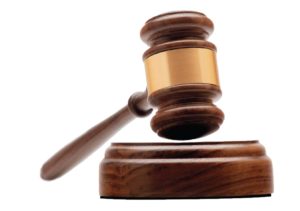
 Thomas Edmund Connors, of Toms River, New Jersey, a stockbroker with Prime Capital Services, Inc., was fined $40,000 and suspended for fourteen months from associating with any Financial Industry Regulatory Authority (FINRA) member in any capacity in connection with a FINRA Office of Hearing Officers Hearing Panel Decision containing findings that Connors engaged in undisclosed outside business activities. Department of Enforcement v. Connors, No. 2012033362101 (Jan. 15, 2016).
Thomas Edmund Connors, of Toms River, New Jersey, a stockbroker with Prime Capital Services, Inc., was fined $40,000 and suspended for fourteen months from associating with any Financial Industry Regulatory Authority (FINRA) member in any capacity in connection with a FINRA Office of Hearing Officers Hearing Panel Decision containing findings that Connors engaged in undisclosed outside business activities. Department of Enforcement v. Connors, No. 2012033362101 (Jan. 15, 2016).
According to the Decision, Connors represented Prime Capital Securities, Inc. as a Certified Financial Planner and Certified Senior Advisor. Outside of the scope of his firm, Connors was alleged to have engaged in outside business activities, without his firm’s knowledge, which included tax preparation, insurance, and investment advisor service.
The Decision indicated that from October 2011 through June 2012, Connors charged a total of forty-seven clients fees associated with his investment advisory service, where he had garnered $18,753 in total fees in this regard. The firm’s Chief Compliance Officer, Glenn McBride, was reportedly never sought out by Connors for approval to charge the customers such fees. The Decision stated that McBride had only approved of Connors charging a fee associated with preparing a financial plan, where the firm’s affiliate, AFP, was to receive the fee instead of Connors directly. Chief Compliance Officer Marshall Baron reportedly told Connors that charging clients a fee to open an account was improper. Apparently, Connors was found to have ignored such instructions, instead billing his clients’ $399 each when opening up a managed account, where such payments were made directly to him. The Decision indicated that the firm suspended Connors in June 2012 after learning about the extent of Connor’s advisory fee charging.
Connors, according to the Decision, attempted to justify to FINRA investigators that the fees he charged customers was not improper because they were associated with his Certified Financial Planner role. Yet, at FINRA hearing, he admitted to ignoring instructions from McBride regarding the aforementioned basis and method of charging client’s fees.
The Decision further indicated that from January to June 2012, while associated with Prime Capital, Connors charged his clients with consulting and tax preparation services for Gilman Ciocia, Inc., which was the parent company of Prime Capital. According to the Decision, the firm learned of these fees upon discovering the aforementioned advisory fees that Connors was charging customers. In a related fashion, Connors reportedly had clients paying him directly for the tax preparation services. The Decision stated that Connors’ thirty-two customers paid him a sum of at least $10,035 in this regard, despite Connors never having authorization to engage in such work, and specifically being told not to perform tax work outside his arrangement with Gilman. The Decision stated that Connors admitted that he would only receive thirty percent of such fees if he informed his firm and Gilman about his activity. Connors reportedly stated at a FINRA hearing that despite not disclosing the fees to his firm, he felt entitled to keep such fees.
The Decision additionally indicated that Connors told FINRA that he had been selling insurance products, via secret arrangements, that were not authorized by his firm and the firm’s affiliates. The Decision stated that Connors admitted, via his testimony, that his rationale for selling the undisclosed and unapproved policies was to make extra money. In connection with selling insurance products, Connors accumulated commissions amounting to $17,696 from May 2011 through May 2012.
The firm’s supervisory procedures, which Connors and employees were required to abide by, called for disclosure of outside business activities and firm approval prior to engaging in such. Connors reportedly attested to his firm, on a yearly basis, to his understanding that accepting checks personally for financial and securities transactions/services was prohibited. Connors pledged to comply with FINRA’s Rule 3270’s disclosure requirements, and not engage in outside activities unless approved. Ultimately, FINRA’s Hearing Panel found that Connors violated FINRA Rule 3270 and 2010 in connection with his undisclosed outside business activities.
Guiliano Law Group
Our practice is limited to the representation of investors. We accept representation on a contingent fee basis, meaning there is no cost to you unless we make a recovery for you. There is never any charge for a consultation or an evaluation of your claim. For more information, contact us at (877) SEC-ATTY.








